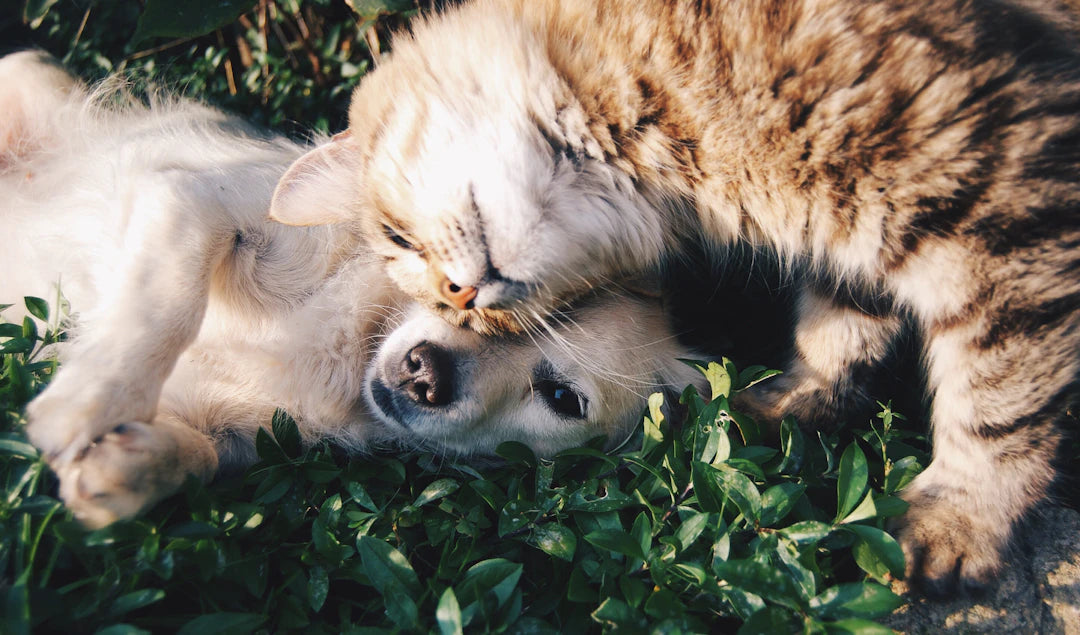
Creating a Pet-Friendly Home Environment
Share
Frequently Asked Questions
1. Why is it important to create a pet-friendly home environment?
2. What are some basic needs of pets that should be considered when designing a home?
3. How can I make my home safe for pets?
4. What are some tips for choosing pet-friendly furniture?
5. How can I maintain cleanliness in a pet-friendly home?
Creating a pet-friendly home environment is essential for ensuring your furry family members are happy and healthy. A well-thought-out space not only makes life easier for you as a pet owner but also makes your pets feel secure and comfortable. In this guide, we'll explore various ways to create a welcoming and safe environment for your pets, focusing on design, safety, and the little details that make all the difference.
Understanding Your Pets' Needs
Before diving into the specifics of home design, it's crucial to understand your pets' needs. Different pets have different requirements, and recognizing these will help you create a better living space for them.
Space for Movement
Whether you have a playful puppy or a curious kitten, providing ample space for your pets to move around is essential. This space can include:
- Open areas for play and exercise
- Safe zones where pets can retreat when they need rest
- Designated spots for toys and activities
Comfort is Key
Your pets should feel comfortable throughout your home. This can be achieved through:
- Soft bedding where they can rest
- Ambient lighting to create a calm atmosphere
- Temperature control to keep them cozy
Creating Safe Spaces
Safety is a top priority when it comes to establishing a pet-friendly home. Here are a few things to keep in mind:
Hazard Management
Keep hazardous materials out of reach. This includes:
- Cleansing agents and chemicals
- Electrical cords
- Small items that can be swallowed
Creating a safe environment means taking the time to remove or secure anything that may pose a risk to your pets.
Pet-Proofing Your Home
Consider pet-proofing measures such as:
- Installing baby gates to restrict access to certain areas
- Using enclosed storage for food and pet supplies
- Investing in slip-resistant flooring to prevent accidents
Designing Pet-Friendly Spaces
When it comes to design, there are numerous ways to ensure your home remains stylish while accommodating your pets. One great addition to your decor could be a 'Forbidden Belly Rub Tee' hung on the wall, as it adds personality while celebrating your pets.
Furniture Selection
Choose furniture that is durable and easy to clean. Some tips include:
- Selecting fabrics that are resistant to stains
- Opting for hardwood floors or tiles instead of carpets
- Investing in scratch-resistant surfaces
By strategically selecting furniture, you’ll make your living spaces both trendy and practical for pets.
Creating Pet Stations
Designate specific areas for different pet-related activities such as eating, playing, and resting. Each station should be easily accessible and comfortable. Here are some ideas:
- A cozy nook with a soft bed and toys for playtime
- A designated feeding area with bowls that are easy to clean
- A place for grooming tools and pet supplies
Enhancing Interaction and Engagement
Pets thrive on interaction and stimulation, so finding ways to engage them within your home is crucial. Here are some engaging tips:
Interactive Spaces
Incorporate spaces that promote play and exploration. You might consider:
- Building shelves or ramps for cats to climb and explore
- Creating hide-and-seek spots with tunnels and boxes
- Adding a spacious outdoor area if you have the option
Maintain a Routine
Pets benefit from routines that bring predictability and comfort. Keeping consistent feeding and playtimes contributes to the overall well-being of your pets. You might also want to integrate pet-friendly decorations that reflect their personalities, making the space feel more like home.
Emphasizing Cleanliness
Keeping your space clean is vital for both you and your pets. With furry friends around, it’s important to regularly clean and maintain your living space.
Regular Cleaning Routines
Establish a cleaning routine that includes:
- Vacuuming pet hair from furniture and floors
- Regularly washing pet bedding and toys
- Deep-cleaning carpets and upholstery to remove stains and odors
Effective Storage Solutions
Utilize smart storage solutions that make it easy to keep pet items organized while maintaining a tidy home. Some ideas include:
- Storage bins for toys and grooming items
- Wall-mounted racks for leashes and harnesses
- Baskets for quick cleanups
Creating a Communal Space
Your pets are part of the family, so it’s important to make sure they have a place in the community space of the home. This encourages bonding between pets and their owners.
Incorporating Pet-Friendly Elements into Living Rooms
Integrate pet-friendly furniture and decorations in your common areas. Consider:
- Using low-profile furniture so pets can jump on without trouble
- Designing a cozy lounge area with room for both pets and people
- Adding pet-themed art, like a quirky 'Forbidden Belly Rub Tee' display
Outdoor Areas
If space allows, create an outdoor area where pets can explore and enjoy nature safely. Suggestions include:
- Fencing to keep pets secure
- Shady spots for relaxation
- Pet-safe gardens with appropriate plants
Special Considerations for Different Types of Pets
While dogs and cats are common, many households welcome other types of pets. Understanding their specific needs will help in creating a home where all your pets can thrive.
Small Animals
For those who have small pets like rabbits or hamsters, consider:
- Creating safe zones where they can roam freely
- Using cages that mimic their natural habitat
- Ensuring their living area is low-traffic to reduce stress
Birds and Fish
Birds and fish also require specific considerations. Make sure to:
- Arrange cages and tanks in safe, quiet spots
- Keep their environments clean and well-maintained
- Use appropriate decor that supports their well-being
Creating Lasting Memories
A pet-friendly home is more than just a space; it's an environment where cherished memories and bonds can be formed. Regularly engaging with your pets, being mindful of their needs, and incorporating the right elements transform a house into a loving home. Stories shared over a 'Forbidden Belly Rub Tee' or along with peaceful moments spent cuddling can create an atmosphere charged with love and companionship.
Take the time to assess your home, implement the suggestions mentioned, and watch how your pets flourish in their new space. A harmonious coexistence awaits, filled with joy, love, and a little bit of playful mischief!

